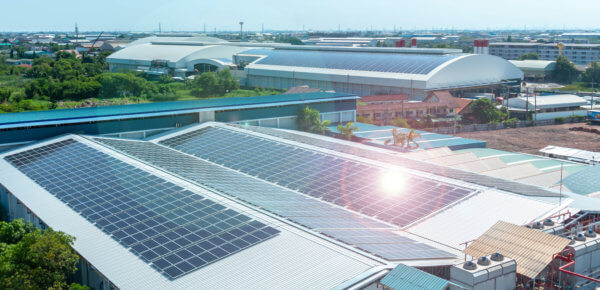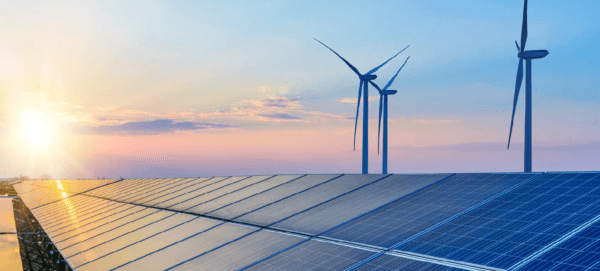Use your carbon reporting data to accelerate your net zero journey
Collecting emissions data is the first vital step of carbon reporting, but how can you turn that data into a robust decarbonisation strategy?
As climate change intensifies and emissions regulations continue to evolve, carbon reporting has become mandatory for more and more organisations. But it’s not all about compliance. The data you collect for your reporting activities can also create an ideal springboard to drive the decarbonisation strategy in your organisation.
In this blog, we’ll explore how you can build a robust decarbonisation roadmap – and go beyond carbon reporting to valuable decarbonisation action.
Collect the right data…
It’s important to remember that emissions regulations aren’t designed to trip you up – they’re designed to help you decarbonise. However, legislation is complicated, ever changing, and full of nuance – so knowing what data you need to collect and disclose can be daunting.
Emissions data falls into three categories: scope 1, 2, and 3. Scope 1 emissions come directly from sources you own or control – like your logistics fleet. Scope 2 are indirect emissions from the energy you use in your facilities. And scope 3 are indirect emissions from external sources – such as suppliers.
By digging into how much each area of your organisation contributes to your emissions, you can understand the exact makeup of your carbon footprint. And if you understand that, you can start to identify the actions that will have the biggest impact on reducing it.
For example, you may have a large fleet of vehicles that you need to fuel, or perhaps you manufacture a product that requires a lot of gas. The data you collect during carbon accounting and reporting can be the perfect tool to help you understand emissions from your individual processes.
…and understand how to use it
Having all your data in one place is one thing, but you also need the skills and knowledge to analyse and use that data in a meaningful way.
The best way to do this is to establish a dedicated team with the right knowledge and training to make sense of your data and see patterns in the noise.
It’s not just about understanding emissions and what areas you need to address, though. You also need the skills and experience to implement the measures that result in meaningful change, which takes design and engineering expertise, a knowledge of the built environment, and an understanding of the solutions available.
Creating or outsourcing these specialist skills must go hand-in-hand with broader improvements in your organisation. The best results come from everyone pulling in the same direction. Simple changes, like turning lights off when you leave a room, may feel like nothing – but when they’re embraced by every member of your organisation, they can add up to a big impact. That’s why education around sustainability and decarbonisation is so important.
Refresh your baseline to keep reducing emissions
It’s important to remember that decarbonisation isn’t a one-off endeavour. You don’t implement measures, reach net zero and pat yourself on the back for a job well done. Reducing your emissions is a continuous process that needs constant evaluation. Every time you reach a new emissions milestone in your organisation, that becomes your new baseline to keep the process moving.
And, as well as looking at the big picture, you need to keep a close eye on the day to day. Making sure you have real-time or very regular data for your utilities means you can easily monitor any changes in your usage. Armed with that information, you can also easily assess the impact of the solutions you’ve put in place and quickly investigate and remedy discrepancies.
A great way to do this is with exception reporting, where you can set parameters for the usage you’d expect to see and get notified of any anomalies outside of those parameters.
Tailored decarbonisation, driven by data
At Mitie, we tailor our decarbonisation support to your organisation’s specific needs.
Everything starts from your baseline, which we’ll help you to understand with a combination of sensor technology and data gathering expertise that provides a detailed picture of emissions across your entire estate. Our experts then help you to understand your data to find the most impactful decarbonisation initiatives for your organisation, with everything from living walls and solar panels to sustainable waste management and EV infrastructure.
We deliver a truly end-to-end service for decarbonisation accounting, reporting and reduction. This includes automating in-year and annual reporting, and valuable insight into decarbonisation initiatives that will accelerate your net zero journey.
Discover our Emissions Intelligence service to take the next step on your net zero journey with confidence. Speak to a Mitie expert to discover how we can help you turn your carbon reporting data into a meaningful decarbonisation strategy.
Read next

Build a decarbonisation business case that speaks volumes to senior execs
Building a credible business case for decarbonisation matters – but how do you articulate it to senior decision makers? Plan Zero Director, Mike Sewell, explains. There’s no way around it – decarbonisation must become…

6 ways to reduce your organisation’s carbon footprint
With over half of the UK’s largest organisations committed to eliminating their carbon emissions by 2050*, there’s growing momentum to reduce our collective carbon footprint. The climate crisis, and the recognised impact of global…
 Skip to content
Skip to content
